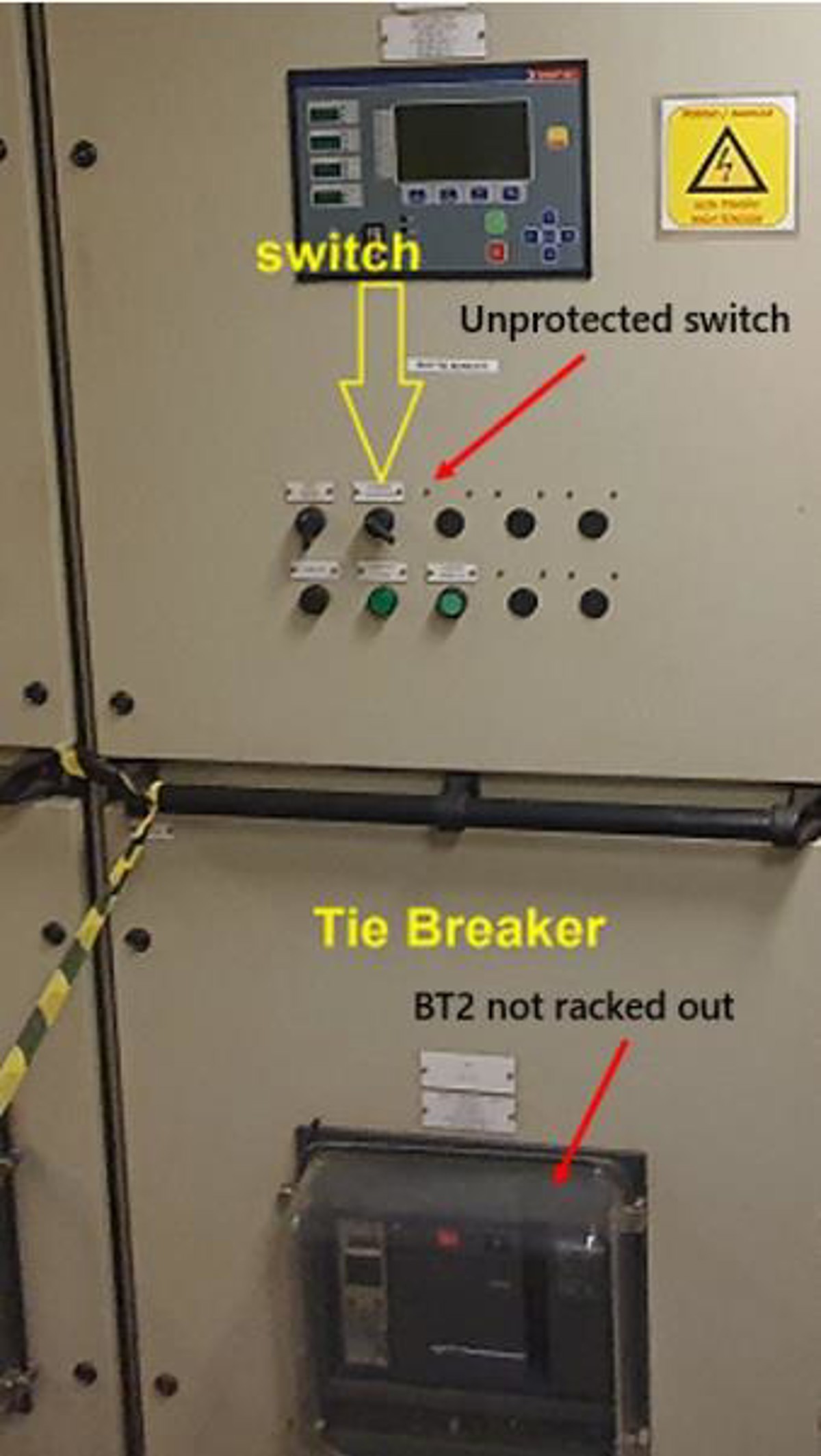Electrician suffered flash burn to hand
- Safety Flash
- Published on 22 September 2021
- Generated on 8 February 2026
- IMCA SF 26/21
- 2 minute read
Jump to:
A third-party electrician on a vessel in dry dock got burnt whilst verifying the integrity of insulation on a 690-volt bus bar.
What happened?
A voltaic arc was created resulting in a flash burn to his hand.
Following medical treatment and a period of restricted duties, he returned to work.
What were the causes?
- The switchboard was energised / live. The bus-tie status switch had been moved to “auto” from “off” and an [as yet] unidentified function of the Power Management System commanded bus-tie breaker 2 (BT2) to close.
- The crew ‘racked out’ most of the circuit breakers, therefore physically isolating them. BT2 was not physically ‘racked out’ because the crew mistakenly believed that this would cause the vessel to blackout. ‘Isolation’ was made using the status switch which may have been considered sufficient had the switch been effectively guarded (locked and tagged), but it wasn’t, and no further action was taken to prevent access.

Lessons learned
- Planning – the vessel/shipyard interface document identified that the shipyard permit-to-work system should be used, however the shipyard management system did not specifically address electrical work and did not specifically require a task risk assessment or lock-out tag-out controls.
- Supervision – The required level of supervision of shipyard personnel and contractors was underestimated in the planning phase of the dry docking leading to insufficient crew being allocated and/or available to supervise critical activities.
- Communication – Changing the status of the bus bar switch (which was not locked out and tagged) occurred during lunch break and was not communicated nor identified prior to resuming work.
- Monitoring – Gaps in the shipyard Permit To Work system were not identified earlier.
Actions
- Additional crew were mobilised to enable adequate supervision and support of activities for the remainder of dry dock.
- The existing shipyard Permit To Work system was augmented with task risk assessments, lock-out tag-out control processes and emergency response instructions and toolbox talks.
- The circuit breaker switches were modified to facilitate effective lock-out tag-out.
- A functionality test of the vessel main power management system was conducted, and documentation / manuals and training updated.
Members may wish to refer to:
- IMCA HSS032 Guidance on safety in shipyards
Related Safety Flashes
-
IMCA SF 10/21
8 April 2021
-
-
IMCA SF 27/18
14 December 2018
-
-
IMCA SF 24/18
30 October 2018
-
-
IMCA SF 23/18
2 October 2018
-
IMCA Safety Flashes summarise key safety matters and incidents, allowing lessons to be more easily learnt for the benefit of the entire offshore industry.
The effectiveness of the IMCA Safety Flash system depends on the industry sharing information and so avoiding repeat incidents. Incidents are classified according to IOGP's Life Saving Rules.
All information is anonymised or sanitised, as appropriate, and warnings for graphic content included where possible.
IMCA makes every effort to ensure both the accuracy and reliability of the information shared, but is not be liable for any guidance and/or recommendation and/or statement herein contained.
The information contained in this document does not fulfil or replace any individual's or Member's legal, regulatory or other duties or obligations in respect of their operations. Individuals and Members remain solely responsible for the safe, lawful and proper conduct of their operations.
Share your safety incidents with IMCA online. Sign-up to receive Safety Flashes straight to your email.